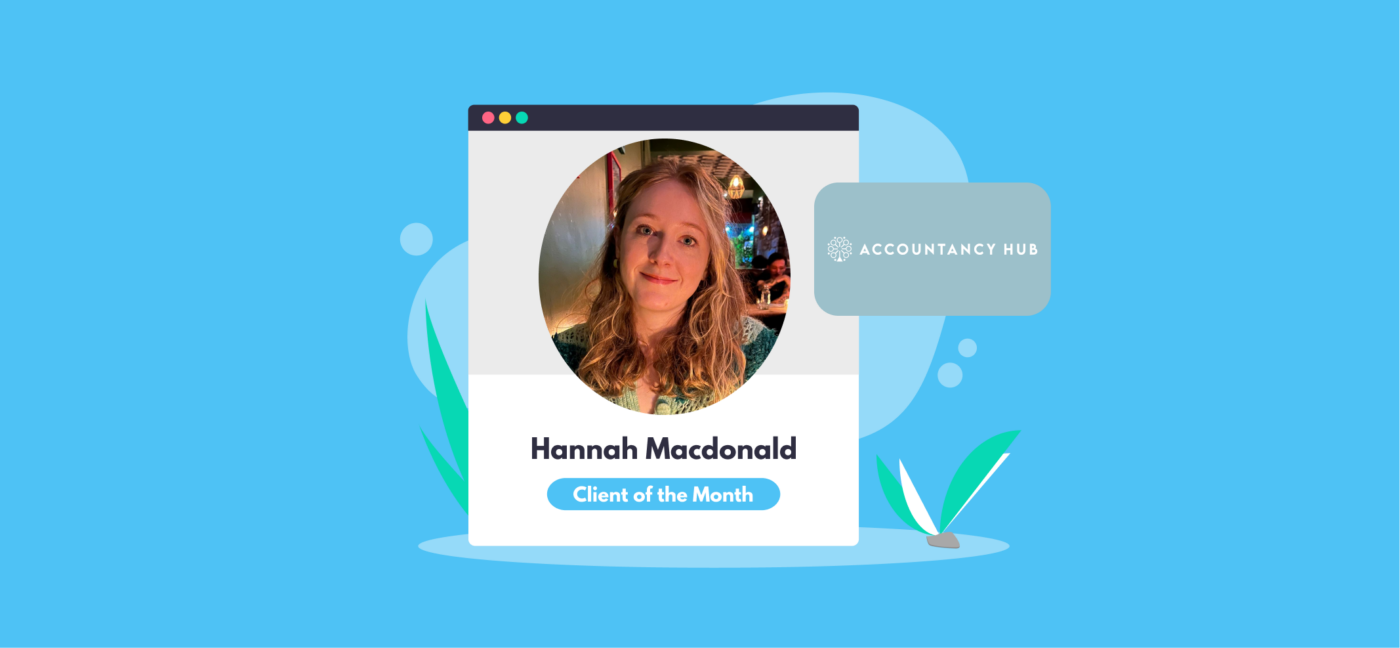

What is Business Asset Disposal Relief (BADR) and Can I Use It?
Business Asset Disposal Relief is a type of tax relief which reduces the amount of Capital Gains Tax due after disposing of an asset. This was previously known as Entrepreneurs Relief (ER). In this article we explain what Business Asset Disposal Relief is, how it works, and what it means for Capital Gains Tax.
What is Business Asset Disposal Relief (BADR)?
To understand BADR, we need to start with Capital Gains Tax (CGT, and yes, accounting is overflowing with acronyms). We explain Capital Gains Tax in more detail in a separate article, but it’s essentially a tax that you pay on any profits that you make when you dispose of an asset. That profit is a ‘gain’, so CGT is a tax on the gain that you make. You might also find our Capital Gains Tax calculator useful.
What does disposal of an asset mean?
The term ‘disposal’ can be misleading as it doesn’t always mean the asset is sold. Disposing of a business asset can also mean giving it away, or swapping it for something. It might also mean:
- That you’re disposing of part or all of a business or shares at the end of ownership, or closing a limited company
- The asset has been stolen or damaged, and you’ve been compensated for its loss, such as with an insurance payout
Can I claim BADR?
Business Asset Disposal Relief (BADR) is only available to individuals operating a business and disposing of a business asset. This disposal may be the sale of an entire business, or the sale of shares. The types of business where BADR applies include the following:
- Sole trader
- Partnership
- Personal company
- Joint ventures
- Trust
How much Capital Gains Tax do I pay if I claim BADR?
With BADR, someone who needs to pay Capital Gains Tax will be charged 14% on any gains they make from disposing of qualifying business assets. If they were a higher rate taxpayer and didn’t claim BADR, they would pay their Capital Gains Tax at a rate of 24% instead, so it’s a big difference! BADR will increase again in April 2026, putting it in line with the basic rate of Capital Gains Tax at 18%.
The table below shows the rate of Capital Gains Tax charged on assets and property in different tax years.
- If you pay the basic rate of income tax, you will pay the basic rate of Capital Gains Tax on your gains
- Someone who pays higher-rate income tax pays higher rate Capital Gains Tax
- Disposals eligible for BADR will be taxed using the BADR rate of Capital Gains Tax
| Asset Type | 2025/26 Rate of CGT |
2026/27 Rate of CGT |
| Most chargeable assets | 18% Basic 24% Higher |
18% Basic 24% Higher |
| Residential property | 18% Basic 24% Higher |
18% Basic 24% Higher |
| Assets qualifying for BADR | 14% | 18% |
Are there any restrictions on the use of Business Asset Disposal Relief?
BADR is only available to individuals who own their business or shares in a company. It doesn’t apply to companies in general, so a company can’t apply for relief using BADR.
Similarly, it only applies to the qualified disposals of assets from the business. BADR cannot be used to dispose of investment assets, and can only be used by trading businesses.
The lifetime allowance for Business Asset Disposal Relief
It’s worth noting that you can only claim BADR up to a lifetime limit, which is currently set to £1 million.
Record any claims that you make, and refer to this information to make sure you don’t exceed the lifetime limit. If you do reach the £1 million limit then CGT will apply at the regular rate. The tables below show the rate of Capital Gains Tax payable by basic rate and higher rate taxpayers when BADR isn’t included.
When can I use BADR relief, and how do I apply for the scheme?
You can use BADR any time you dispose of some, or all, of a business or shares at the end of ownership, as long as qualifying criteria are met. There are no limits to how many times you use it, but the lifetime total is now capped at £1 million.
There are two ways through which you can apply to claim BADR if you qualify for the scheme.
- Apply for BADR through a Self Assessment tax return
- Claim BADR by filling section A of the Business Asset Disposal Relief helpsheet
What’s the deadline to apply for BADR?
You can put in a claim for BADR up until 31st January, one year on from the end of the tax year in which the business disposal was made. For example, if you completed a business disposal on 15 May 2024, then the disposal took place in the 2024/25 tax year. You have until 31st January 2026 to claim BADR.
What are the eligibility criteria to be able to claim BADR relief?
To be eligible to claim BADR, you’ll need to meet the following criteria:
- The company or business must be trading
- A sole trader or partnership must have been trading for at least two years before selling or business ceasing
- You own at least 5% of the total shares and voting rights, and have done so for at least two years
- Shareholders must have been employees or ‘office holders’ (such as a director) for at least two years before the sale
An individual selling their entire business or part of their business
There are two conditions required by which individuals could qualify for BADR if they’re selling all or part of their business:
- The individual is a sole trader or business partner
- The individual has owned the business for a minimum of two years
Individuals must ensure the two-year minimum is met before selling their business. This timeframe is known as the ‘qualifying period’. If someone is closing their business, then the same conditions apply but BADR will only be available when the business asset is sold within three years of the business closing.
An individual is selling shares or securities
People with shares or securities in the company they work for can use this relief when they sell them. They’ll qualify for BADR as long as:
- They’re an employee or office holder (such as a director) of that company
- The company’s main activities should be trading, and it must not be non-trading activities of the company like an investment. It can also be a holding company of a group of trading companies
In both of these conditions, the individuals must hold the minimum two-year qualifying period until they sell their business.
Where the shares are from the Enterprise Management Incentive (EMI)
In case of shares being disposed of from an Enterprise Management Incentive (EMI), the following conditions must be fulfilled:
- The shares must be bought after 5 April 2013
- The company is not the individuals’ personal company
- An individual physically held the EMI shares for at least two years before selling them
Where the shares are not from the Enterprise Management Incentive (EMI)
Where the shares being disposed of are not from an Enterprise Management Incentive (EMI), the following criteria must be met:
- The business has to be an individuals’ ‘personal company’ for a minimum of two years before shares are sold
- The individual must have both 5% of the shares and 5% of the voting rights
- The individual is entitled to a minimum of 5% of either the company profits or disposal proceeds
An individual would also be liable for getting BADR if they hold less than 5% shares where the company issued more shares.
An organisation that stops operating as a trading company
If the company stops operating as a trading company, an individual can still qualify for BADR if they sell their shares within three years of the company ceasing operations.
Where an individual is a trustee
An individual who is a trustee may also be eligible for BADR by selling their shares. However, these claims can be more complicated depending on the circumstances of the trustees, trust and beneficiaries. Qualifying criteria are as follows:
- For three years before shares are sold, an individual should be classed as a qualifying beneficiary (QB) for either one year before 6 April 2019 or for two years after this date.
- The company of the shares being sold must be the ‘personal company’ of the qualifying beneficiary
- An individual must be an officer or employee of the company
You might find it useful to seek further advice on your particular circumstances when seeking BADR as a trustee.
An individual that is selling the assets that were loaned to their business
Different criteria are needed for individuals looking to sell their assets that were loaned to their business. This category requires the following conditions:
- An individual that sells a minimum of 5% of their part from the partnership or shares from a personal company
- An individual who owns assets that were used by the personal company or their business partner for a minimum of one year
- This year must conclude with the individual selling their shares, the business or the business closing
If you’re an individual looking to sell assets that were loaned to your business, it’s a good idea to determine if the assets qualify for BADR in this category.
How does BADR work with other schemes like Capital Allowances, VAT, and Income Tax relief?
BADR is about giving relief for capital gains only. Other schemes, like capital allowances, VAT, and income tax relief will continue to work the same way they usually do. BADR doesn’t impact these schemes in any way.
Are there any alternatives to BADR?
Depending on the size of the business asset being disposed of, other schemes may be worth considering due to the £1 million lifetime limit of BADR. These schemes include Investors’ Relief, (Seed) Enterprise Investment Schemes, and Employee Ownership Trusts.
Learn more about our online accounting services, including support for tax returns to help you claim tax relief you’re entitled to. Call 020 3355 4047, or get an instant online quote.
Want to learn more?
Subscribe to our newsletter to get accounting tips like this right to your inbox

Read more posts...

February 2026 Client of the Month: Accountancy Hub
27th February 2026This month we spoke to Hannah, founder of Accountancy Hub. Accountancy Hub | Instagram Hey Hannah! Tell us about your business…
Read More
Paying Yourself a Salary from Your Limited Company
26th February 2026Being a director means you’re legally separate from your limited company even if you’re also the owner, so you’ll need to decide…
Read More
How Do Footballers Pay Tax?
24th February 2026We all know top-flight footballers do alright. But how does tax work for professional footballers? Is it treated as self-employed income, or…
Read MoreConfirm Transactions
The number of monthly transactions you have entered based on your turnover seem high. A transaction is one bookkeeping entry such as a sale, purchase, payment or receipt. Are you sure this is correct?
Please contact our sales team if you’re unsure
VAT Returns
It is unlikely you will need this service, unless you are voluntarily registered for VAT.
Are you sure this is correct?
Call us on 020 3355 4047 if you’re not sure.
MTD IT Quarterly Updates
Your final, end of year MTD Income Tax submission is included in your fee, without this add-on service.
We would recommend you submit the quarterly updates yourself using Pandle or alternative bookkeeping software.
However, if you would prefer us to submit these quarterly updates for you, there is an additional fee of £35.00 per month.
Call us on 020 3355 4047 if you’re not sure.
Bookkeeping
You will receive our bookkeeping software Pandle for free, as part of your package.
You can use this to complete your own bookkeeping, or we can provide a quote to complete your bookkeeping for you.
Please select and option below:
Call us on 020 3355 4047 if you’re not sure.

